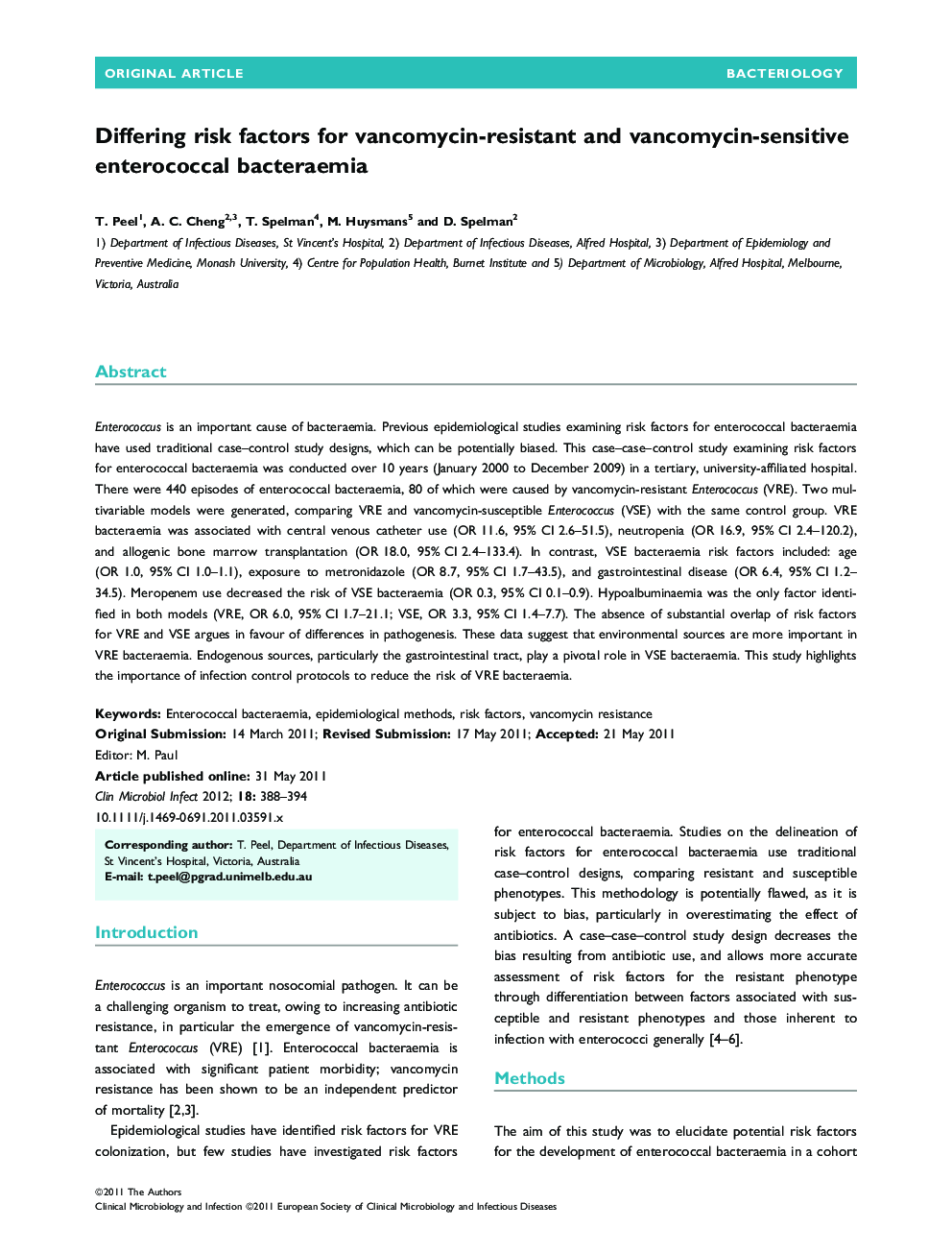| Article ID | Journal | Published Year | Pages | File Type |
|---|---|---|---|---|
| 6131141 | Clinical Microbiology and Infection | 2012 | 7 Pages |
Abstract
Enterococcus is an important cause of bacteraemia. Previous epidemiological studies examining risk factors for enterococcal bacteraemia have used traditional case-control study designs, which can be potentially biased. This case-case-control study examining risk factors for enterococcal bacteraemia was conducted over 10 years (January 2000 to December 2009) in a tertiary, university-affiliated hospital. There were 440 episodes of enterococcal bacteraemia, 80 of which were caused by vancomycin-resistant Enterococcus (VRE). Two multivariable models were generated, comparing VRE and vancomycin-susceptible Enterococcus (VSE) with the same control group. VRE bacteraemia was associated with central venous catheter use (OR 11.6, 95% CI 2.6-51.5), neutropenia (OR 16.9, 95% CI 2.4-120.2), and allogenic bone marrow transplantation (OR 18.0, 95% CI 2.4-133.4). In contrast, VSE bacteraemia risk factors included: age (OR 1.0, 95% CI 1.0-1.1), exposure to metronidazole (OR 8.7, 95% CI 1.7-43.5), and gastrointestinal disease (OR 6.4, 95% CI 1.2-34.5). Meropenem use decreased the risk of VSE bacteraemia (OR 0.3, 95% CI 0.1-0.9). Hypoalbuminaemia was the only factor identified in both models (VRE, OR 6.0, 95% CI 1.7-21.1; VSE, OR 3.3, 95% CI 1.4-7.7). The absence of substantial overlap of risk factors for VRE and VSE argues in favour of differences in pathogenesis. These data suggest that environmental sources are more important in VRE bacteraemia. Endogenous sources, particularly the gastrointestinal tract, play a pivotal role in VSE bacteraemia. This study highlights the importance of infection control protocols to reduce the risk of VRE bacteraemia.
Related Topics
Life Sciences
Immunology and Microbiology
Microbiology
Authors
T. Peel, A.C. Cheng, T. Spelman, M. Huysmans, D. Spelman,
